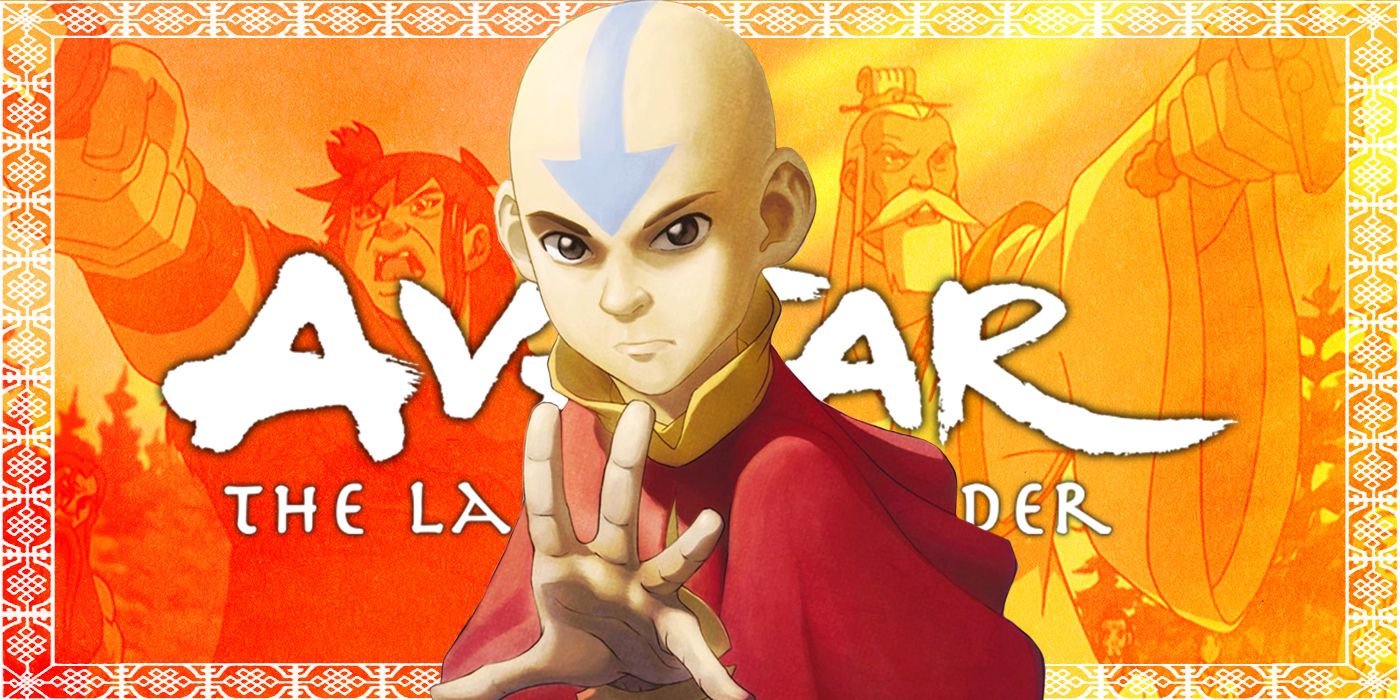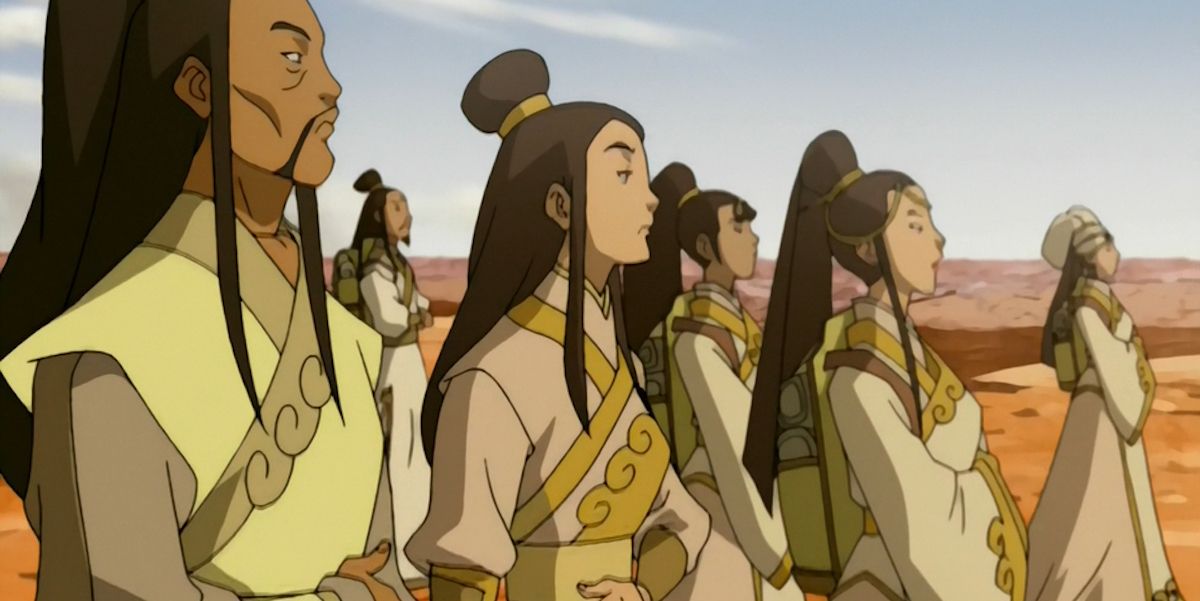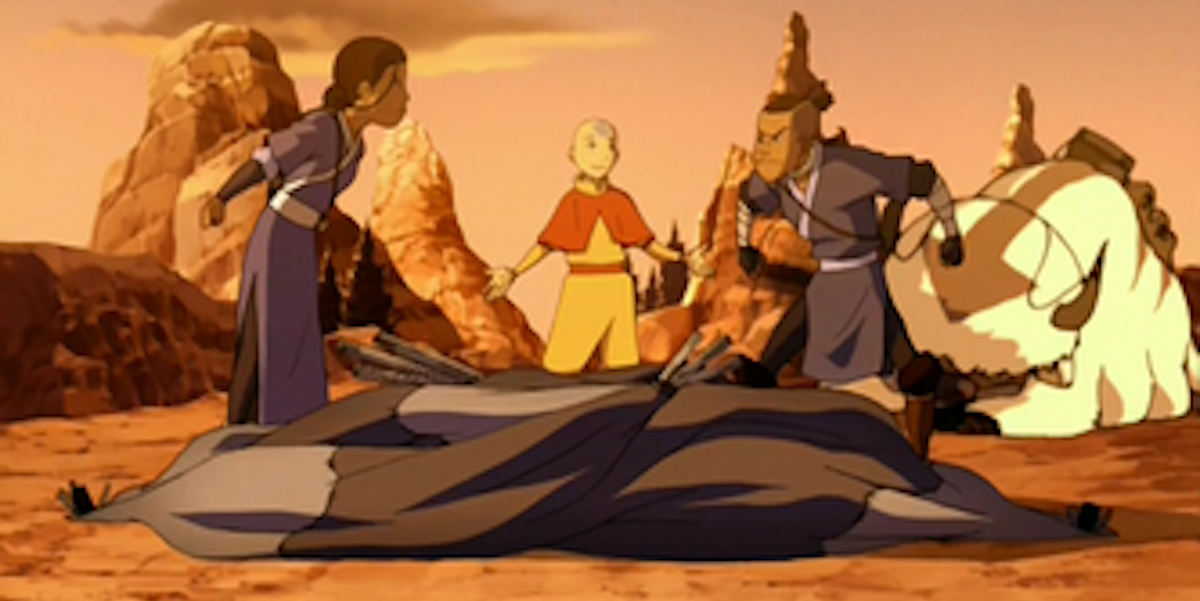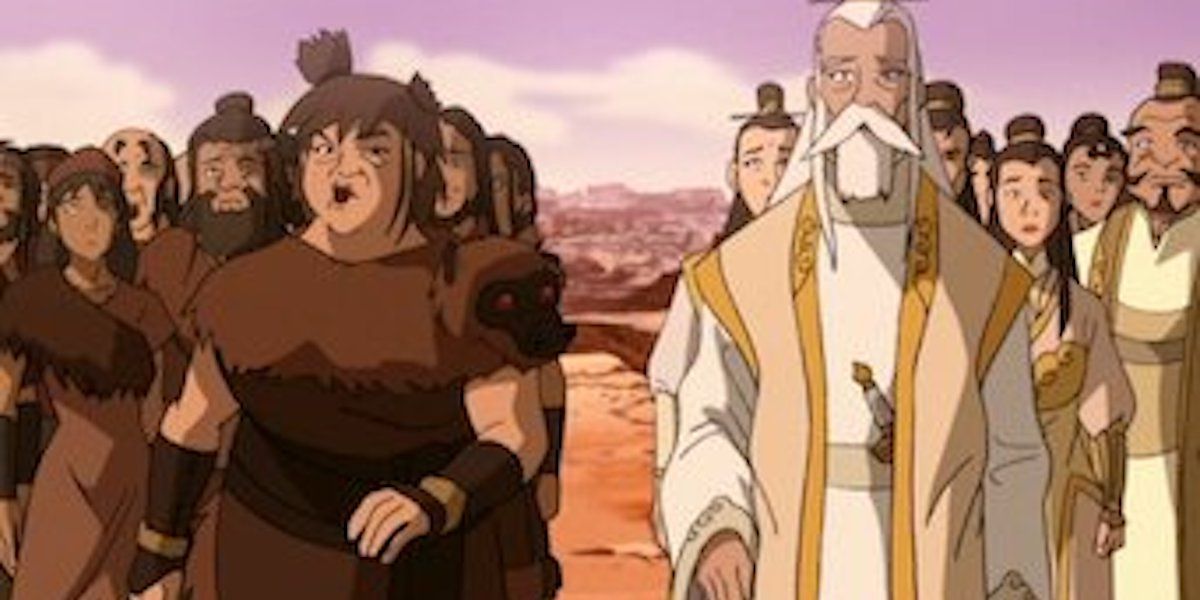Avatar: The Last Airbender is known for its high-quality episodes, including both ones that are more episodic in nature and those that advance the plot. Even what could be considered filler episodes are held in high regard, and many of them include elements that are important enough not to skip. Consider “The Tales of Ba Sing Se," which goes deeper into developing characters like bender Toph (Jessie Flower) and Iroh (Mako), “The Beach” which introduces important layers to the show's villains, especially Azula (Grey DeLisle), and “The Ember Island Players.” Even in a well-loved TV series, though, there are episodes that viewers skip on every re-watch, and for Avatar: The Last Airbender, that episode is Book 1, Chapter 11, “The Great Divide.”
As the single most hated episode of Avatar, “The Great Divide” is a low point in the series during the early episodes. Fans of the show criticize its meaningless plot, easy resolutions, and strange character behaviors. Even the show runners poke fun at "The Great Divide" during the book three recap episode, “The Ember Island Players”; the actor who plays Sokka (Jack DeSena) suggests they skip the adventure altogether. But “The Great Divide” is undeserving of the level of hatred it has attracted.
As one of the earlier episodes of the series, not even halfway through book one, “The Great Divide” has several missteps, such as Katara (Mae Whitman) and Sokka getting into a petty argument that feels out of character. This storytelling decision was made to compare them to the feuding clans. While this heavy-handed storytelling technique does feel overbearing, it nevertheless places an important emphasis on Katara and Sokka’s personalities. Their experiences with the Gan Jin and the Zhang tribes teach them important lessons about petty squabbles and teamwork. From here on out, there are no more useless arguments about how to properly set up camp. If Katara and Sokka argue, they do so about far more important matters, like whether to help a heavily polluted Fire Nation village when they are already short on time.
One of the greatest weaknesses of the episode is the plot, which features two clans that we have never seen before and will never see again, caught in a years-long petty feud that puts the entire group in danger as a result. This plot line has no bearing on the overall story of Avatar; not even its central theme ties into the greater narrative. But many episodes of Avatar are stand-alone stories, and “The Great Divide” has the benefit of humor via over exaggeration. The Gan Jin and Zhang tribes are so bitter toward each other that one can’t help but roll their eyes and chuckle.
The parallel flashbacks that both tribes use to give the history of their feud feature creative animation, as the style changes to reflect the tribes’ different aesthetics and personalities. The story of their fight’s origin also demonstrates how misunderstandings can grow into something bigger and darker.
The creativity of the episode doesn’t end with the flashbacks; Avatar’s story world is expanded by introducing the concept of benders being rendered useless without the ability to move their arms. This important note on Avatar’s magic system is reinforced by their guide’s unfortunate run-in with the canyon crawlers, which are on par with many of Avatar’s strange creatures and are underappreciated monsters. They may not be a hybrid of two animals, a pattern that the show mainly uses for its unique creatures, but the canyon crawlers still feel very much like Avatar animals.
Aang’s (Zach Tyler) creativity and determination to become a true peacekeeper are also on full display in this episode. While Aang unfortunately solves the warring tribes’ generations of hatred far too easily using deception that seems out of character, he is not perfect. He has lied before, and after, the events of this episode. In the pilot, Aang lies about being the Avatar, and in “Bato of the Water Tribe,” he makes a terrible mistake by trying to hide a message from Katara and Sokka’s father. Aang being a flawed hero is an important element of the story, and he grows as the story advances.
Even if his solution for ending the tribes’ feud is easy and arguably immoral, his creativity in fighting the canyon crawlers is absolutely in-character. Aang has been known to show great interest in riding large, dangerous creatures. And what better way to fight off the canyon crawlers than to ride them up the canyon’s walls? Aang’s fun-loving qualities are a trademark of book one, and this episode shows off the exaggerated, silly humor as well.
“The Great Divide” may contain missteps in early book one, but it is still a fun and entertaining watch when not compared to other filler episodes of higher quality. “Tales of Ba Sing Se” features a collection of vignettes to simulate the passage of time, and “The Ember Island Players” is basically a clip show that uses the creative framing device of a Fire Nation propaganda play; both are well-loved storylines, and both are generally considered to be filler.
Of course “The Great Divide” would be disliked in comparison. The episode even has the misfortune of directly preceeding Book 1, Chapter 12, "The Storm," which is one of the earliest indications that Avatar would become something greater than just an inventive kid's show. Avatar shows the same degree of love and care, no matter what each episode is about. “The Great Divide” just so happens to be a mediocre episode trapped in a lineup of stellar storylines.
Sure, "The Great Divide" is lacking in quality. But it does present an interesting story, fun and dangerous creatures in the Avatar style, and silly humor that is a strong point in the first season, especially Aang’s childlike behavior. While it isn't anything special, the episode highlights important character traits and expands the story world. All in all, "The Great Divide" may not be a masterpiece like so many other Avatar episodes, but it is still a fun watch, and it doesn’t deserve half as much of the hate as it gets.





